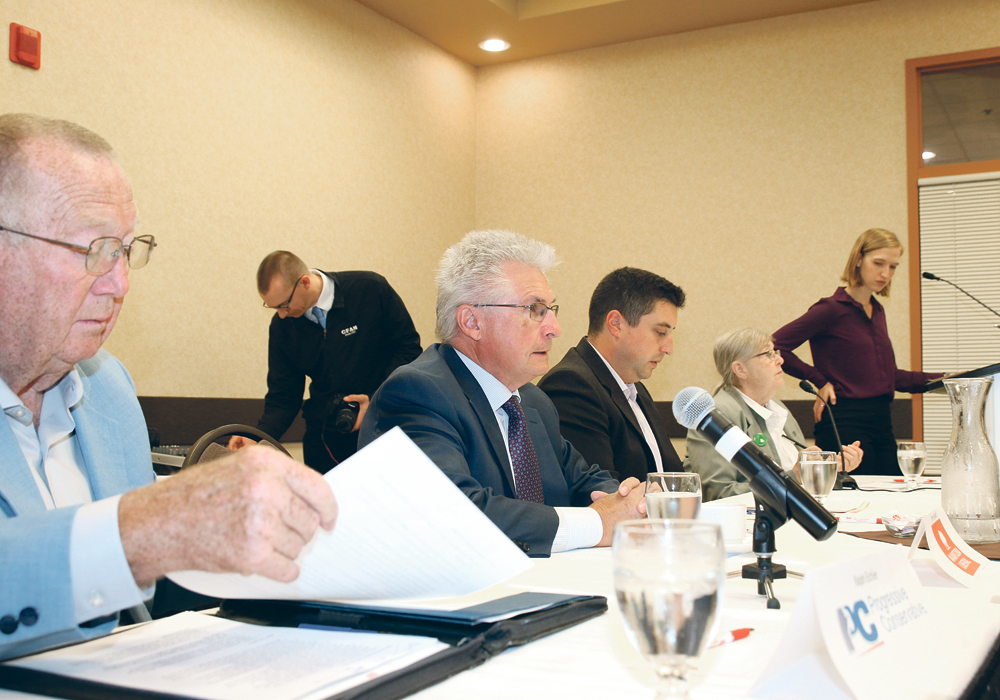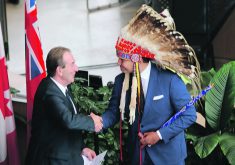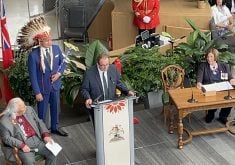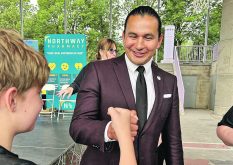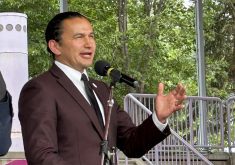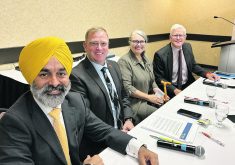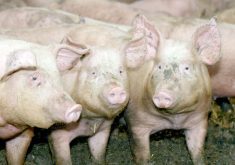Manitoba is quietly cruising toward a Sept. 10 provincial election with the four main parties striving to differentiate themselves.
But for voters — farmers and city people —there are few major issues dividing the people and few major differences between the parties.
In agriculture, the most marked aspect of the campaign seems to be the general consensus among the parties.
“I think our record speaks loud and clear for itself,” said Ralph Eichler, Progressive Conservative candidate for Lakeside and provincial minister of agriculture.
The Manitoba Liberal Party thinks “more open-mindedness in co-operating with the Liberal federal government” would help achieve more for farmers, said Lac du Bonnet candidate Terry Hayward, who spoke at the same agriculture policy debate as Eichler and other party representatives.
Read Also

Canadian Food Inspection Agency red tape changes a first step: agriculture
Farm groups say they’re happy to see action on Canada’s federal regulatory red tape, but there’s still a lot of streamlining left to be done
New Democratic Party Selkirk candidate Mitch Obach said rural Manitoba is much different than Winnipeg, and needs policies focused on that reality.
Green Party candidate for Notre Dame, Martha Jo Willard, said her party thinks “evidence-based” policies are the best way to improve the rural environment and support sustainability for farmers.
The provincial election campaign has been heavily Winnipeg-focused. The PC government has been overhauling the high-cost, poorly performing health care system, with the NDP official opposition highlighting problems arising from closing Winnipeg emergency rooms and other actions in the three-year Tory reign.
The Liberal party has been trying to demonstrate that it has a range of policies and a new leader that make it a viable option for voters as either the official opposition or government, trying to move into the space between the anger aimed at Premier Brian Pallister for his actions and demeanour, and the doubts and dislike focused on NDP leader Wab Kinew due to his troubled early life and connection to the previous NDP government.
The Green Party, while not electing MLAs, has been a significant force on the left in Manitoba, occasionally alarming the NDP with vote-splitting during its 17 years in power.
While mostly relying upon its record to demonstrate what more PC-rule would mean, the party has also promised to boost biofuel inclusion rates and increase funding for farmer-based environmental protection.
The other parties haven’t offered many breaks with the PC government’s generally cautious agriculture policy actions. All support environmental protection, increasing value-added production, and helping farmers find more markets.
The NDP has received little farmer support in recent years compared to the PCs, who control most of Manitoba outside of Winnipeg.
The Liberal party finally achieved official party status when its new leader, Dougald Lamont, was elected last year, and it has tried hard to realize the perennial potential of becoming the official opposition. With the PCs launching daily attacks on Kinew’s run-ins with the law and alleged prevarications in his memoirs, the party appears to have tacked-left with its policy approach.
During the agriculture debate, organized by the Manitoba Farm Writers and Broadcasters Association, a general sense of collegiality prevailed, with the four politicians sticking to policy rather than ideological or personal attacks.
It was on the issue of rural internet service that all four seemed most engaged.
“Every citizen, no matter where they live in the province, deserves the same access to the internet that the people in the middle of Winnipeg has,” said Willard.
Hayward said the government should be working closer with local, rural-based, independent internet providers to get services out to farmers.
“We need to work with these folks so that they’re not at an unfair disadvantage to Bell-MTS,” Hayward said. Bell-MTS is the name of the provincial subsidiary of Bell, which took over MTS and promised much improvement in rural internet access.
Obach said the PC government had agreed to the sale of MTS to Bell upon those promises, but now Bell was reneging on those promises.
Eichler said this is an issue mostly beyond the ability of the provincial government to handle itself.
“We have to find a way to partner with the federal government,” said Eichler, who has been a marked contrast to Pallister in terms of generally getting along with the federal government.


